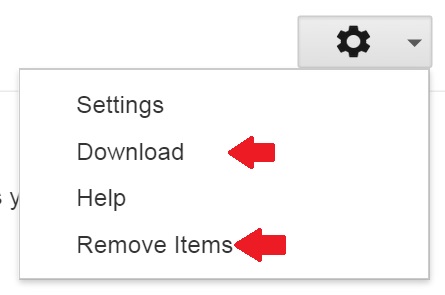Google collects a tremendous amount of information.
That’s pretty useful — to Google and to us. They improve their selection of what search results to show us based on what we’ve chosen in the past. They also give us similar results that we’ve liked before when we search again.
And of course they tailor ads to our searching which, while creepy, is actually quite good — I’d rather have ads that contain relevant information and offers than ones that are utterly useless to me though in practice it doesn’t much change the likelihood that I’ll click.
Google search data is also fascinating in the aggregate for social sciences. What people are searching tells us something about what they’re thinking, and en masse it tells us something about what “we” are thinking as a society. It can also be eerily predictive.
Still, it is creepy. We voluntarily give up information, and likely don’t think much about what’s being collected. At least until the government comes calling, using it against us in a criminal prosecution.
Google will now let you download your search history so you can see it, archive it. And they will let you delete your search history. It’s been suggested that doing so really does remove it from their servers. I don’t know the extent to which they keep backups should the NSA come knocking with a FISA warrant (though the NSA probably has copies already).
Nonetheless, some will want delete their searches for the gifts they plan to buy their spouse, the cosmetic surgery they wish they could undergo, or the medical condition they were deeply afraid that they had (even though it turned out to be just a cold).
- Go to gistory.google.com
- You may be asked to log into your Google account.
- Options to download or to remove your history are on the upper right

(HT: Ed Krayewski)


It doesn’t really delete your history. They remove some personally identifying info after 18 months, but as we saw from the yahoo experiment, you could be identified from the remaining info by piecing it together–by a news organization.
Chrome is more insidious at retention, and you have a separate You Tube history you can pause and delete….least as far as you know.
Just keep repeating that “five years is the statute of limitation for most federal crimes” so if you talked about the bank robberies you’ve been doing with a Gary Leff mask, just get beyond 5 years. But, of course, if you didn’t pay the taxes on the money you stole there’s that SOL on tax fraud.
I’d just assume everything, including phone communications , is stored. As a former FBI counter-terrorism expert said on CNN after the Boston bombing:
BURNETT: Tim, is there any way, obviously, there is a voice mail they can try to get the phone companies to give that up at this point. It’s not a voice mail. It’s just a conversation. There’s no way they actually can find out what happened, right, unless she tells them?
CLEMENTE: “No, there is a way. We certainly have ways in national security investigations to find out exactly what was said in that conversation. It’s not necessarily something that the FBI is going to want to present in court, but it may help lead the investigation and/or lead to questioning of her. We certainly can find that out.
BURNETT: “So they can actually get that? People are saying, look, that is incredible.
CLEMENTE: “No, welcome to America. All of that stuff is being captured as we speak whether we know it or like it or not.”
Of course, it’s not just using a Google account. A record of every search ever done thru Google with any browser is kept forever, I don’t care what they say to the media.
So just don’t use Google. You can get virtually the exact same result going thru Duck Duck Go. They say they don’t collect any personal information at all, so there is nothing to delete. And if someone comes with a warrant, the truth is they don’t have any records.
http://www.duckduckgo. com
Like you I am a leader in my field too, support of the top OS Windows 7. In forums I’ve helped 1.5 million consumers get and keep perfect installs since it was released six years ago. I advise them all to not install any Google programs or stay signed into any Google app including YouTube, as these are relentless spyware that track your every move and paste interest ads everywhere you go. Do your Google searches from the stable search box on IE11, Firefox or Opera which do not allow Google to spy from them. There is no record whatsoever of MS spying from IE11 and the others are open-source public domain browsers.
@roberthanson– is that a cleverly chosen moniker, a happenstance of name , or are you sending stuff from the federal pen? LOL
What’s funny is I have read some stuff that anyone who ever downloaded Tor or an anonymizer is considered suspicious. So, who knows (granted SOMEONE does know), all the anonymity sites may be a ruse. I recall the CIA’s venture capital arm (yeah, really) funded anonymizer.com.
The thing that bothers me is the ability to use sensitive information for insider trading , for example.
Rogue use of data , when you have a lot of employees, is a problem even in M&A law firms. It’s gotta be a problem with a lot of salaried employees.
I could go from traderprofit to traderloss.
Now, to dispose of my Gary Leff mask………………